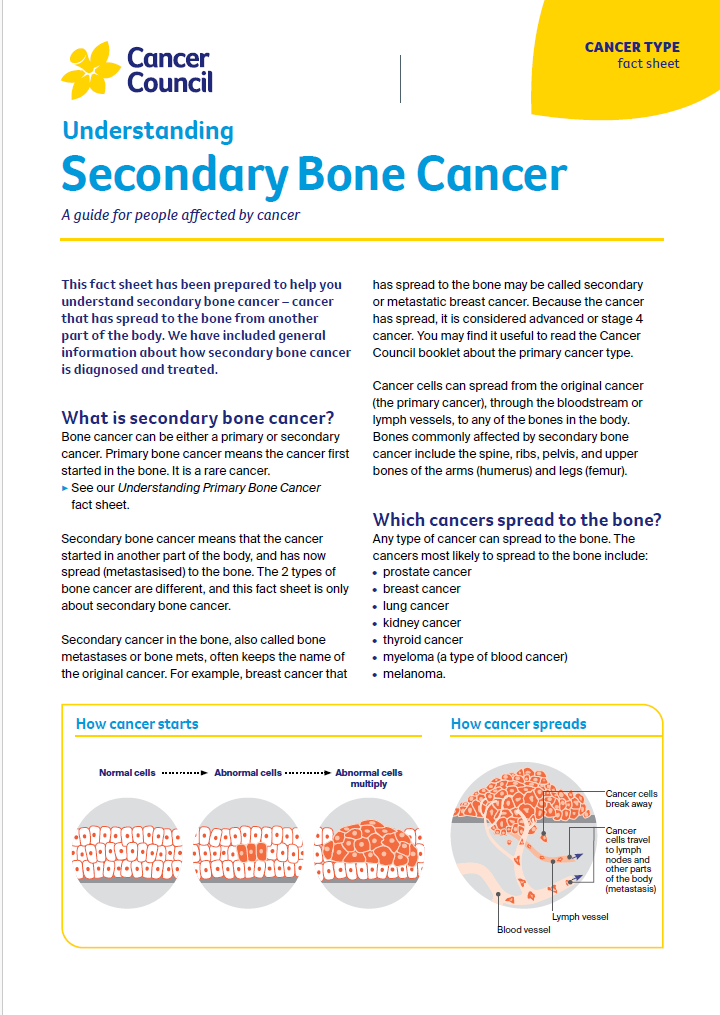- Home
- Secondary bone cancer
- Managing symptoms
Managing symptoms of secondary bone cancer
 | PainParacetamol and non-steroidal anti- inflammatory drugs (NSAIDs), such as ibuprofen, can be used to treat mild pain. Opioid-based medicines can help reduce moderate to severe pain. Steroids, like dexamethasone, are strong anti-inflammatory medicines and may be used for bone pain.For more on this, see Pain and cancer, and listen to our podcast on Managing Pain when Cancer Is Advanced. |
FatigueMany people experience extreme or constant tiredness known as fatigue. This may be because the cancer is affecting your bone marrow. You’ll have blood tests to monitor your blood cell count. If your red blood cell level is low (anaemia), you might have a blood transfusion. Getting enough rest, exercise and eating well can help with your energy levels.For more on this, see our general section on Fatigue, and listen to our podcast on Managing Cancer Fatigue. | |
Complementary therapiesThese therapies are used alongside conventional medical treatments. Therapies such as massage, relaxation and acupuncture can increase your sense of control, decrease stress and anxiety, manage pain and improve your mood. Let your doctor know about any therapies you are thinking about trying, as some may not be safe or evidence-based.For more on this, see Complementary therapies. |
→ READ MORE: Living with secondary bone cancer
Podcast: Managing Cancer Fatigue
Listen to more of our podcast for people affected by cancer
More resources
Prof Angela Hong, Radiation Oncologist, Chris O’Brien Lifehouse, and Clinical Professor, The University of Sydney, NSW; Anne Booms, Nurse Practitioner Supportive and Palliative Care, Icon Cancer Centre Midlands, WA; A/Prof Richard Boyle, Orthopaedic Surgeon, Royal Prince Alfred Hospital Sydney, NSW; Belinda Fowlie, Bone Tumour Nurse Practitioner Candidate, SA Bone and Soft Tissue Tumour Unit, Flinders Medical Centre, SA; Dr Tahlia Scheinberg, Medical Oncologist, Chris O’Brien Lifehouse, NSW; Dr Clare Zachulski, Palliative Care Specialist, Westmead Hospital, NSW.
View the Cancer Council NSW editorial policy.
View all publications or call 13 11 20 for free printed copies.

